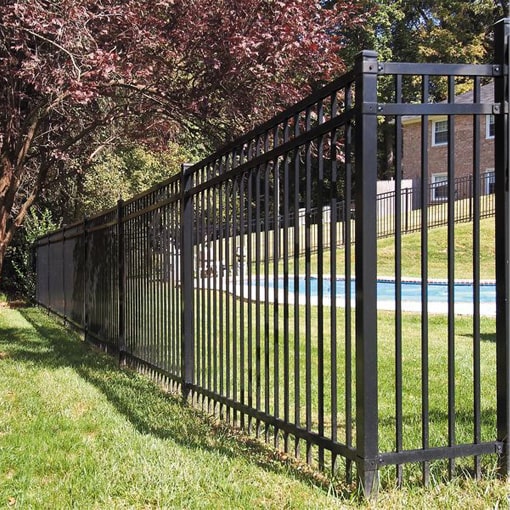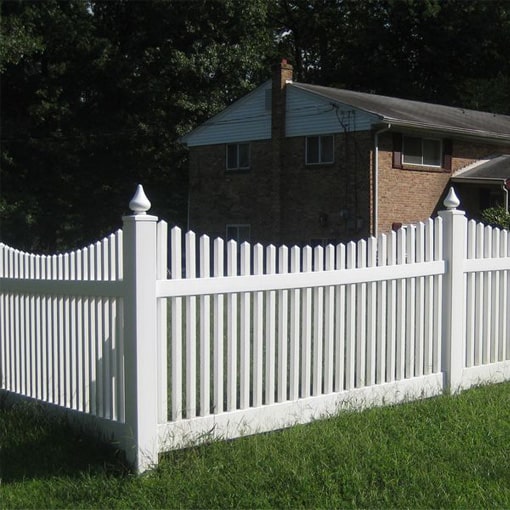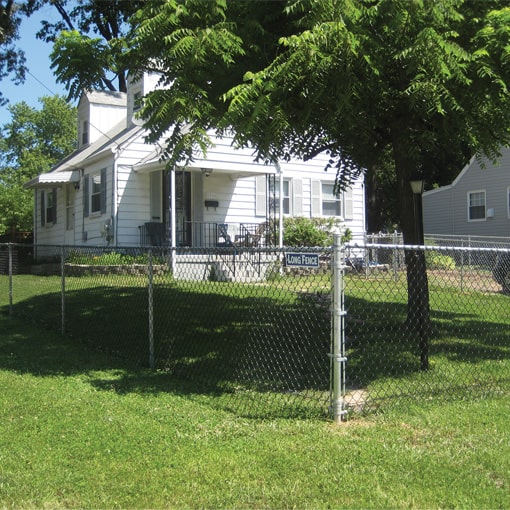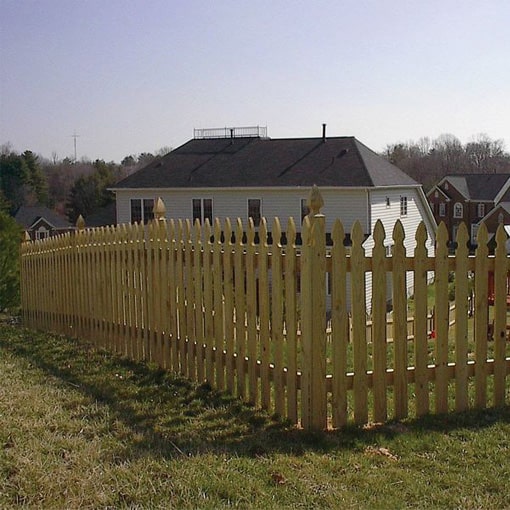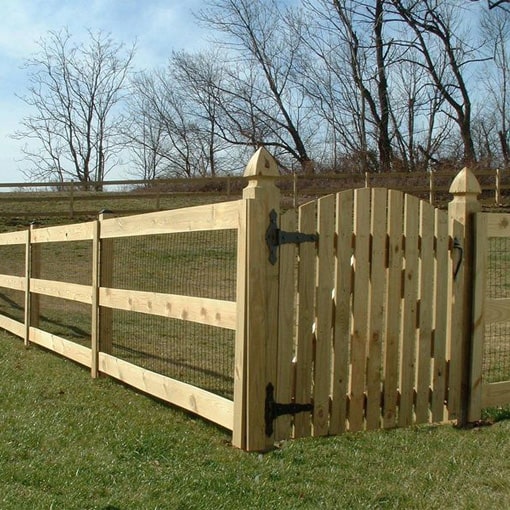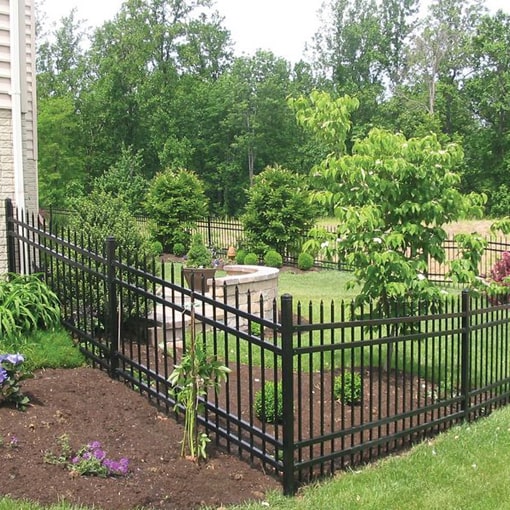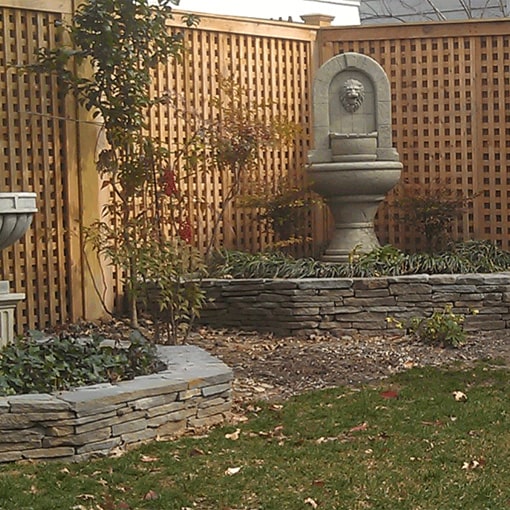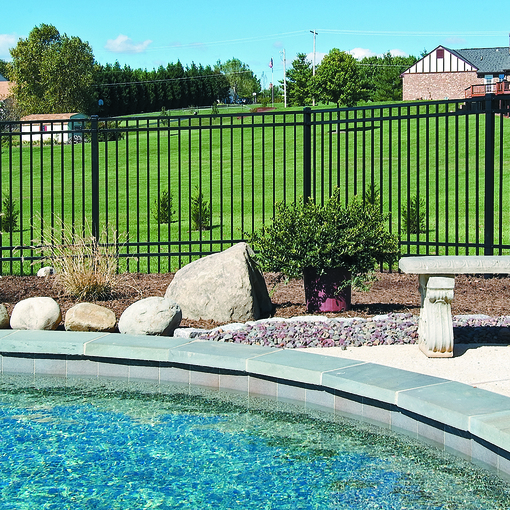
Long® Fence has been committed to providing customers with the highest quality residential fences in the business for nearly 75 years. Our loyalty to our customers and our goal of constantly improving our product have allowed us to maintain our status as a leader in the residential fence industry.
Long Fence offers a full selection of a variety of fences to suit your property and help you to create your dream outdoor space. Our nearly 75 years of expertise ensures that installation is as professional as possible for a high-quality product that is tailored to what you want.
We are here to help you choose a residential fence that will suit your needs, complement your home, and stay within your budget. We offer a wide range of possibilities for your fence. Additionally, if you currently have a fence that you are unhappy with, whether it has been damaged or it simply does not suit your tastes anymore, Long Fence can repair it or replace it even if we did not install it originally. Choose the fence company that can do it all.
It can be overwhelming trying to find information about fences and the specific types of fences, especially if this is your first time having a residential fence installed. To help give you an idea of what we have to offer you for your residence, we have outlined the reasons to get a fence and information about the different types of fences that we can install.
Reasons to Install a Residential Fence
Residential fences can serve so many purposes. They are practical but can also enhance the way that your property looks.
The first and most obvious function of a fence is to provide security. Fences are great for keeping things in and others out. A fence can keep children and pets safe and secure in your property and prevent them from wandering off. A residential fence can also prevent unwanted animals or trespassers off of your property and can provide an extra barrier to anyone attempting to break into your residence. In the section outlining the types of fences, we will also discuss which types of fences provide the most security. Certain fences can also inhibit outsiders from being able to see into your home. If you value privacy in your home, then installing a residential fence is a good option for you. Moreover, a fence defines your property boundaries and assists in protecting everything within those boundaries, including your privacy.
Fences can also protect your landscaping. Anything from a beautiful garden to a finely trimmed lawn can be harmed by animals, people walking through your yard, or weather conditions such as high winds. A beautiful landscape and a charming fence go hand in hand. In addition to adding to and protecting the landscape, a fence can also architecturally enhance your property. We can offer any type of fence with a variety of designs, so it will be easy to choose a fence that complements the style of your home and landscape, adding value to your property.
We are here to help you choose a residential fence that will suit your needs, complement your home, and stay within your budget.
Optional Features for Your Residential Fence
There are plenty of optional features available for your residential fence.
A popular option is a residential fence gate. All of our residential fences have the option for vertical board gates that can have a flat top, arch top or dip cut so that they complement your style of fence.
A popular type of gate is a walkway or driveway gate, which can come in a variety of widths suitable for pedestrians or any type of vehicle. Garden and pool residential fence gates are also a popular option for our clients. A garden gate keeps any unwanted visitors, be it trespassers or animals, from accessing your beautiful landscape, and pool gates make it difficult for young children to enter the pool area and help prevent accidents.
Our gates can also come with a variety of lock or latch mechanisms depending on the level of security that you want for your property. We sell everything from easily accessible latch systems to magnetic devices, keyed locks and automated openers. Further, residential fence gates can add both aesthetic and functional value to your property.
Each type of fence has a variety of options for style. Wooden fences can come in multiple colors with a variety of wood types and styles, including space board, picket board, split rail, among many others. Vinyl fences also come in a variety of colors and styles including Crossbuck Estate and Chesterfield. Ornamental iron fences and aluminum are primarily black, but come in beautiful varieties like Diplomat and Monarch for iron and Charleston and Piedmont for aluminum. Chain link fences can come with vinyl slats for more privacy and vinyl coating, which is less expensive than the powder finish and gives more color options. Our website has extensive information on each type of fence and the styles offered for each.
We also offer a variety of special treatments for our fences to prevent rotting, decay, rusting, and weather wearing.
Why You Should Choose Long Fence for Your Residential Fence Installation
Since 1945, Long Fence has pledged to its customers that it will approach all jobs with promptness and professionalism, accept any job with dedication to quality service and detail, and offer the best value for investment. We sell the highest quality fencing materials in the market and offer installation with exceptional customer service. Long Fence surpasses safety requirements just like with all our residential projects.
Benefits of Owning a Fence
- Child safety
- Pet control
- Protect landscaping
- Add architectural enhancement
- Define property boundaries
- Privacy
- Add to property value
- Enhance home security
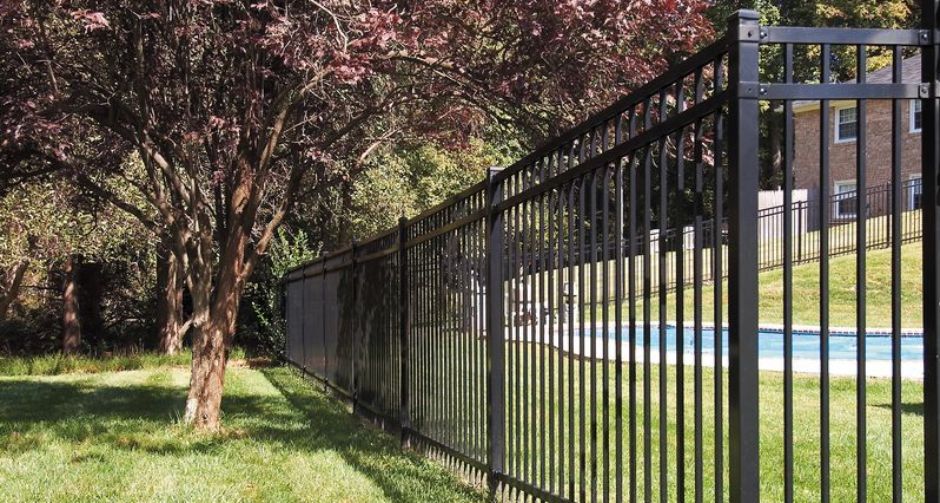
Aluminum Fence
Aluminum residential fences are a very attractive and low-maintenance type of fence. Aluminum fences are low-maintenance because of their naturally rust-resistant qualities. An aluminum fence provides a barrier and defines your property. It is easy to paint and decorate to make it look like any type of fence you want.
Aluminum FenceVinyl Fence
Vinyl fences are popular because they are strong, flexible, and secure. Vinyl fences are almost completely maintenance-free and resist decay, and most tough stains are removed easily with soap and water. Vinyl fencing will pay for itself through its long-lasting and low-maintenance nature. As a wood substitute, vinyl is a great choice if you are looking for something that looks like wood but requires less maintenance. Vinyl does not rust or rot and comes in a variety of styles and colors.
Vinyl Fence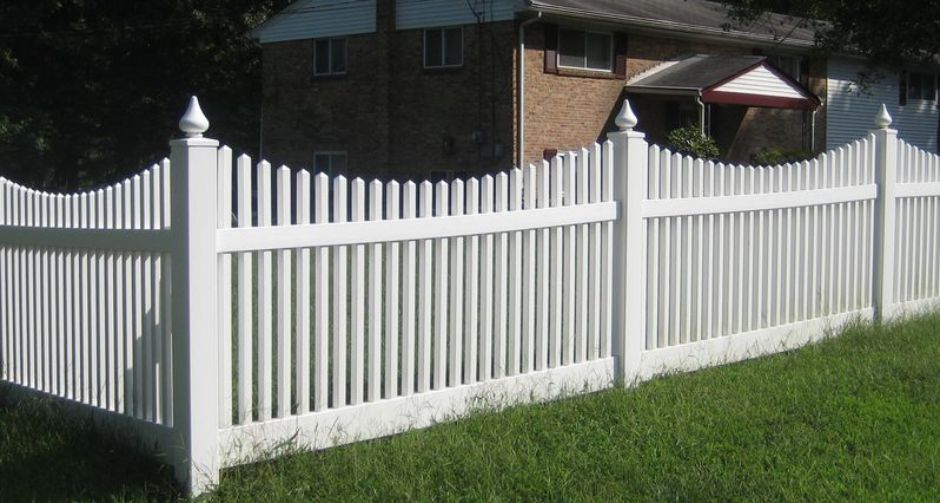
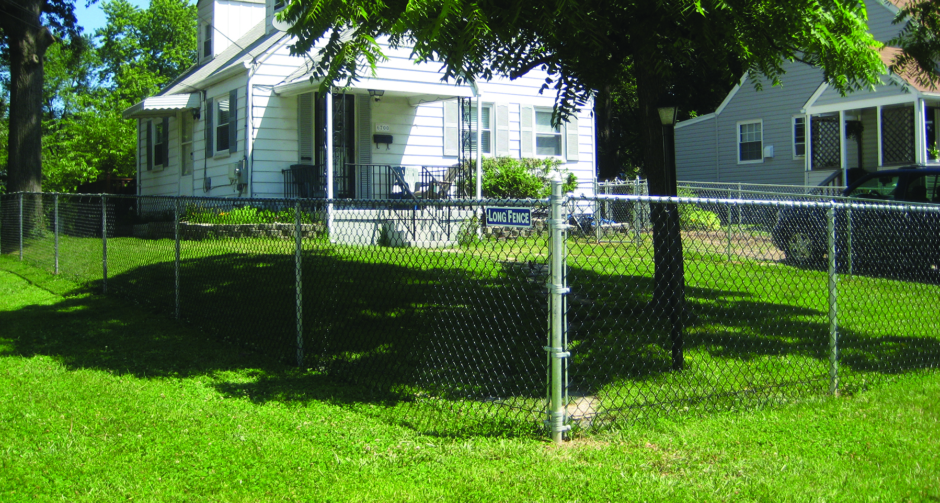
Chain Link Fence
Our chain link residential fences are a great affordable option for defining your property and keeping everyone in it safe. The framework using our aluminized and galvanized fabric fences gave ab acrylic coating to protect the metal cores, which helps to protect the fence from the elements. Our aluminized fabric given its properties is known as “self-healing”. Chain link fences are secure because they are hard to climb over, but at the same time, they provide visibility for you to see any possible intruders. It also prevents animals and solicitors from wandering through your property landscape. Chain link fences are one of the most budget-friendly options for residential fencing.
Chain Link FenceWood Fence
Wood residential fences are the most popular type of fence across the nation. They are attractive, secure, ensure your privacy, and can last for generations. They are also very affordable while giving a classic, welcoming feeling to your property. Wood fences, however, are all very versatile. There are various types of lumber from which to choose to build your fence. Depending on the type of lumber you select, the cost may vary. For example, a stockade fence will give you extensive privacy for your property, whereas split rail fences solely serve the purpose of marking the boundaries of your property.
Wood Fence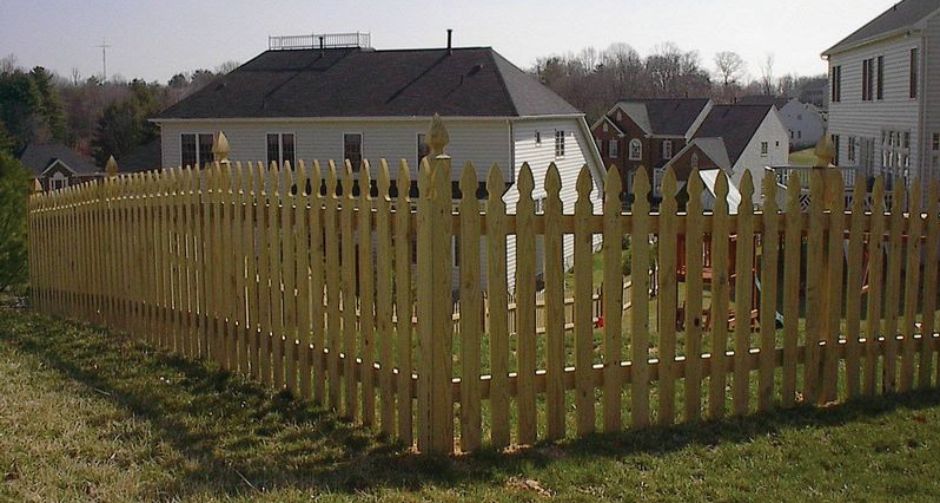
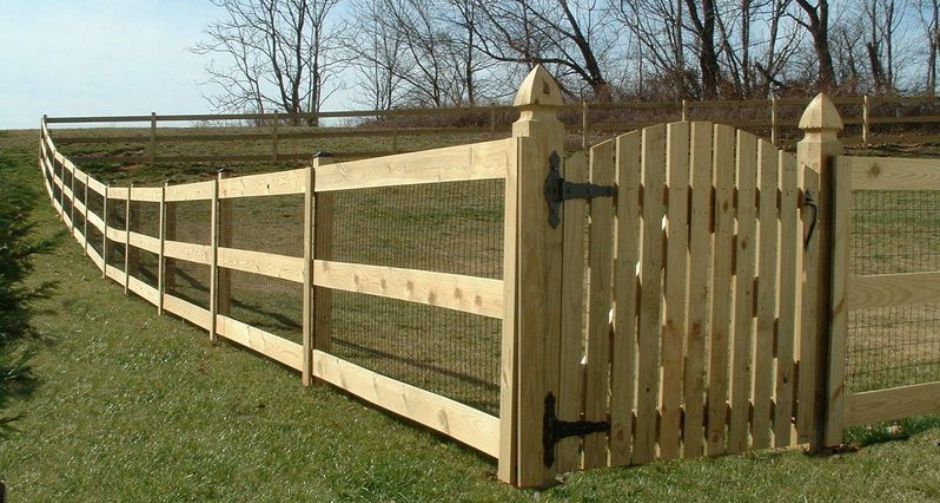
Fence Gates
Whatever type of fence you have, we have a gate to match. Walkway and driveway gates can be fit for exactly your fence’s opening. All our gates are customizable to add security features or to beautify them.
Fence GatesOrnamental Iron
Ornamental iron fences, or wrought-iron fences, are a beautiful and secure option for your property. These are often used for both residential properties, in addition to governmental and commercial buildings because of their elegant, yet high-security, qualities. We hand-build such custom fences in our own fabrication plant. Our ornamental iron fences have a baked-on powder-coated finish to make them low-maintenance and long-lasting. Like our other types of fences, there are plenty of styles to choose from for your ornamental iron fence.
Ornamental Iron Fence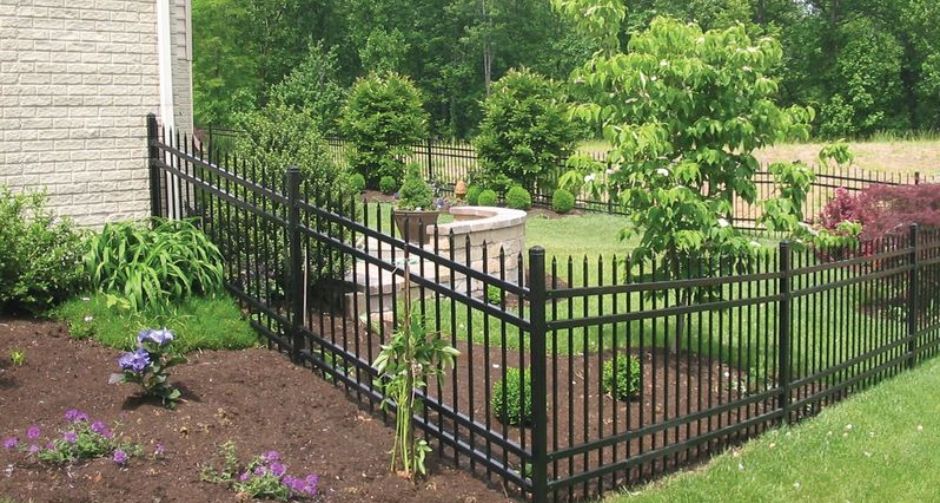
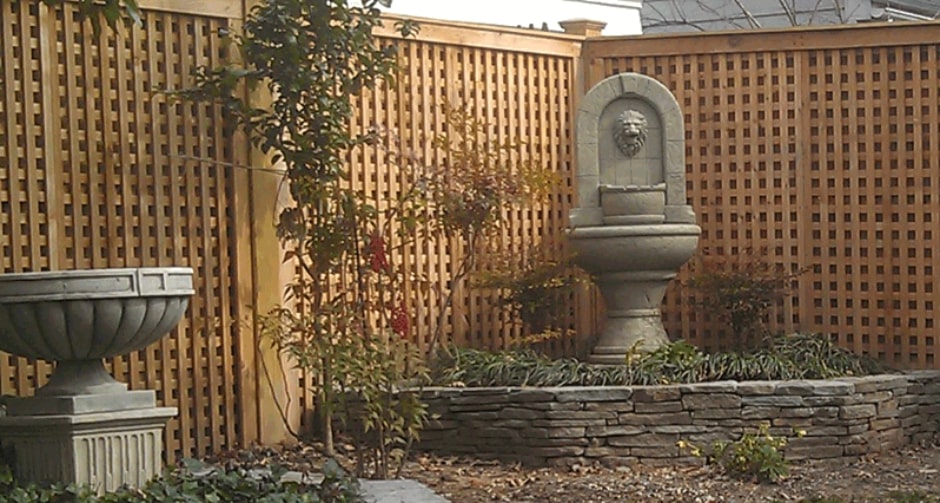
Privacy Fence
We offer a variety of residential privacy fences that aid in blocking out any unwanted sights or even sounds. If you live in a densely populated area where there is a lot of traffic noise and it is easy for people to see into your property, a privacy fence may be the best option for your property. Our privacy fences come in wood, vinyl and to some extent chain link when privacy slates are added to the fence (although even the privacy slats allow some view). Our wood privacy fences deter outsiders, vinyl privacy fences offer an extended life, and chain-link privacy fences are very strong. Our privacy fences are treated to resist water damage and insects so that practically no maintenance is required once the fence is installed. Our privacy residential fences come in a variety of styles and heights to suit your specific property and vision.
Privacy FencePet Fence
Your special family members need special protection. Long® Fence’s custom pet fences keep your dogs inside your property, where they belong.
Pet Fence


